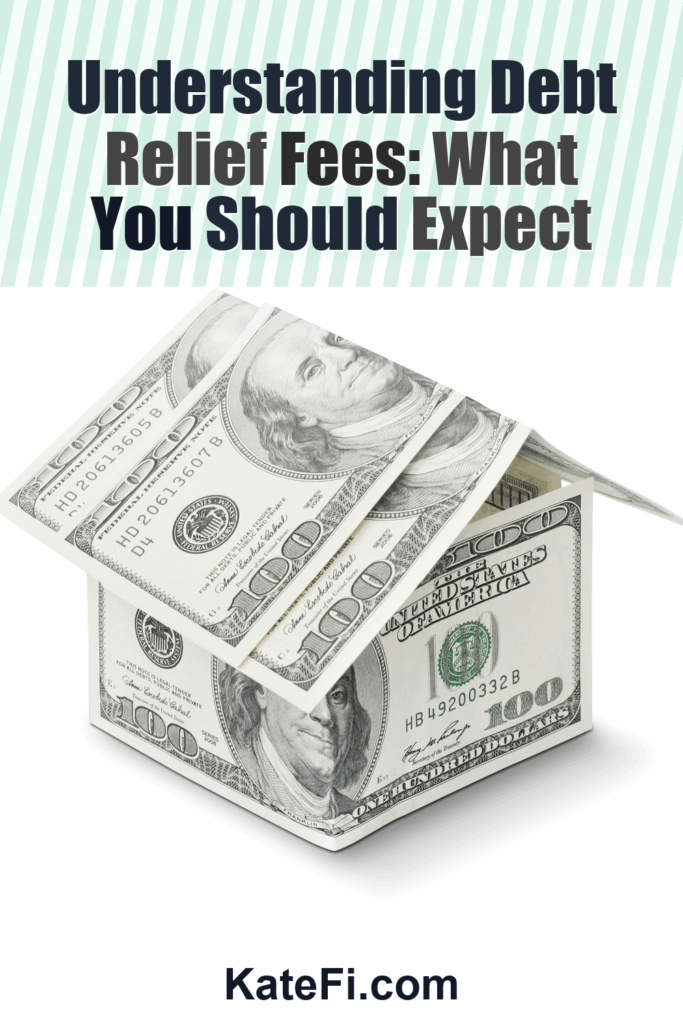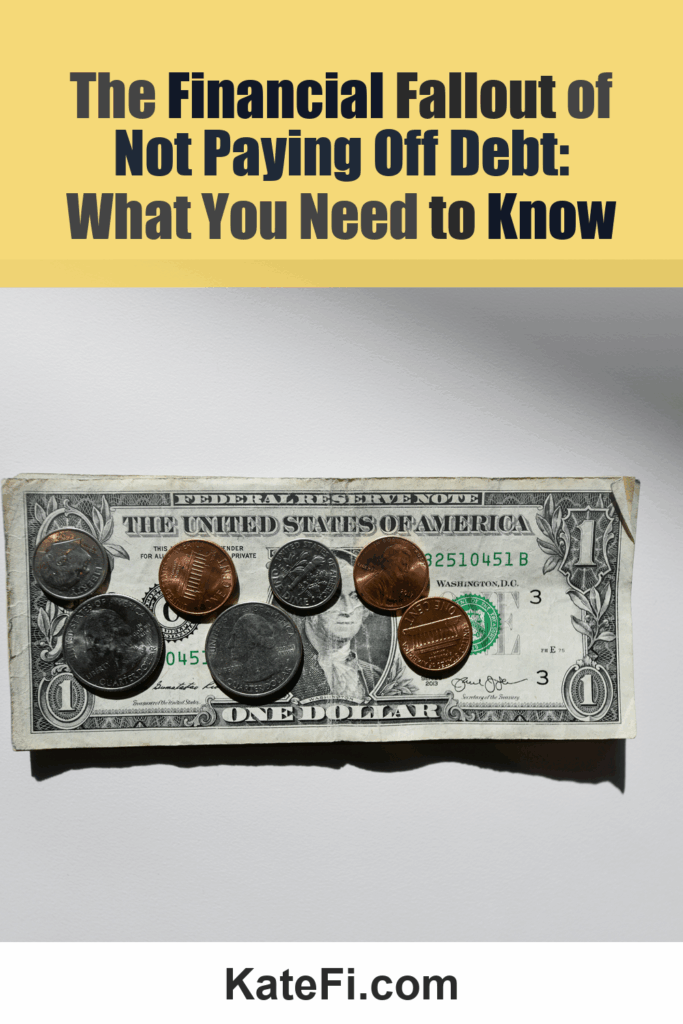The Psychological Benefits of Becoming Debt-Free: 5 Insights
Living with debt is not just a financial burden; it can also take a significant toll on your mental health. As the stress of owing money builds up, many find themselves in a relentless cycle of anxiety, guilt, and even despair. In contrast, achieving a debt-free life can bring about a profound sense of relief, control, and empowerment. In this blog post, we’ll explore five psychological benefits of becoming debt-free and debunk common myths surrounding debt relief and credit. Plus, we’ll discuss when bankruptcy consultations might make sense for your situation.
Love our content? Show your support by following us — pretty please!🥺
FOLLOW ON PINTEREST
Hi! I’m Kate, the face behind KateFi.com—a blog all about making life easier and more affordable.
Let’s dive in!
Understanding the Psychological Weight of Debt
Lower Your Unsecured Debt
If you have $5,000+ in credit card or personal loan debt, a free consult can review options like settlement or hardship plans.
- One-on-one call to review your debts and goals
- See potential monthly payment reductions
- No obligation to enroll
Not available in IL, KS, OR, TN, UT, WV.
Debt can create a mental barrier that affects your daily life, relationships, and overall happiness. The feeling of being trapped can lead to stress-related health issues, affecting your sleep, concentration, and even your social life. On the other hand, when individuals find pathways to debt relief, they often report feeling lighter, more in control, and ready to embrace life again.
But how do we get there? First, let’s address some myths about debt relief that may hold you back.
Myth vs. Fact: Debunking Common Misconceptions
What You’ll Learn on the Call
- Estimated timeline and monthly payment range
- How credit may be affected in the short term
- What documents to gather to move faster
Not available in IL, KS, OR, TN, UT, WV.
Myth 1: Bankruptcy is the End of Your Financial Life
Fact: Many people believe that filing for bankruptcy will ruin their financial future. In reality, bankruptcy can be a fresh start that allows individuals to rebuild their credit over time. After filing, many can qualify for credit and make wiser financial decisions moving forward.
Myth 2: Debt Relief Programs Are a Scam
Fact: While it’s important to do your research, there are legitimate debt relief programs available. Getting a free consultation from professionals, like those at KateFi, can help clarify your options.
Myth 3: Only Irresponsible People Accumulate Debt
Fact: Life happens. Unexpected medical expenses, job loss, or economic downturns can lead anyone into debt. It’s crucial to remember that accumulating debt does not define your character or responsibility.
Myth 4: Paying Off Debt Quickly is Always Best
Fact: While paying off high-interest debts quickly can save money, not every situation is straightforward. Sometimes, slower repayment plans may allow for more sustainable financial habits.
Myth 5: You Can’t Negotiate with Creditors
Fact: Creditors are often willing to negotiate payment plans, lower interest rates, or even settle for less than what you owe. This can be especially true when you have a debt relief expert assisting you.
Myth 6: Debt Relief Will Negatively Impact Your Credit Score
Fact: It’s true that some debt relief options can affect your credit score in the short term. However, becoming debt-free can ultimately improve your financial standing and help your credit score rebound faster in the long run.
Myth 7: Debt Consolidation Is the Same as Debt Relief
Fact: Debt consolidation is one way to manage your debt but doesn’t necessarily lead to debt relief. Understanding the differences and seeking expert advice can help you choose the best path forward.
5 Psychological Benefits of Becoming Debt-Free
Understand pros/cons of settlement vs consolidation vs DMP for your exact mix of debts.
Not available in IL, KS, OR, TN, UT, WV.
Now that we’ve addressed some myths, let’s look at five psychological benefits that can come from becoming debt-free:
1. Enhanced Mental Clarity
When debt is no longer looming over your head, you may experience an unprecedented sense of mental clarity. This newfound space in your mind can help you focus on long-term goals, be more creative, and improve your overall productivity. Instead of worrying about bills, you can concentrate on the things that matter most to you—be it family, work, or personal projects.
2. Improved Emotional Well-being
Debt creates emotional strain. Anxiety, depression, and shame can often accompany financial hardship. Achieving debt relief can lead to significant improvements in emotional well-being. You might find that your mood lifts, relationships become stronger, and you can enjoy life more freely.
3. Empowerment Through Control
Becoming debt-free means taking control of your finances. This sense of control can be liberating and can foster a greater sense of confidence. With a clear financial plan, you can set goals and work towards them, turning your focus from mere survival to thriving.
4. Reduced Stress Levels
The weight of financial burdens can lead to chronic stress, which has well-documented adverse effects on your health. With debt relief, many individuals report reduced stress and improved overall health. The anxiety that once kept them up at night diminishes, allowing for better sleep and improved concentration.
5. Better Relationships
Financial stress can impact your relationships, leading to arguments and distance between loved ones. When you become debt-free, the emotional relief often allows for healthier communication and stronger connections with friends and family. This improved relational dynamic can significantly enhance your quality of life.
When Bankruptcy Consultations Make Sense
While becoming debt-free can feel like a journey filled with ups and downs, sometimes it’s essential to consider more drastic measures like bankruptcy. Here are some situations where consulting a bankruptcy professional might make sense:
- Overwhelming Medical Debt: Medical emergencies can create insurmountable bills. If you find yourself buried under such expenses, consulting a bankruptcy attorney can help you assess your options.
- Job Loss or Reduced Income: If a job loss has drastically affected your ability to pay your debts, bankruptcy may offer a way to manage or eliminate that burden.
- Multiple Collections: If you are facing multiple collections or lawsuits, seeking professional help can clarify your options and potentially prevent further legal action.
- Emotional Distress: If debt has led to severe emotional distress, discussing bankruptcy with a professional can provide you with a roadmap to recovery.
Remember, consulting with professionals, such as those at KateFi, can help you navigate these challenges and explore all possible avenues.
✅ See If You Qualify for Debt Relief
Gathering Necessary Documents for a Smooth Consultation
Before you meet with a debt relief consultant or bankruptcy attorney, it can be helpful to gather the following documents for a more efficient review:
- Recent pay stubs or income statements
- Monthly expenses
- Outstanding debt statements (credit cards, medical bills, loans)
- Bank statements
- Tax returns for the last two years
- Any legal documents related to debts or collections
Having these documents ready can speed up the process and help the professional provide you with tailored advice.
Conclusion: Embracing a Debt-Free Life
The psychological benefits of becoming debt-free extend beyond financial stability—they offer a pathway to improved mental health and overall happiness. By addressing common myths and understanding when to seek professional help, you can take the necessary steps towards a more fulfilling life.
Whether you’re considering bankruptcy or simply seeking a structured approach to debt relief, getting a free consultation from experts at KateFi can help you identify the best route for your unique circumstances. The journey to becoming debt-free can lead you toward a brighter future, free of the psychological burden that debt can create.
✅ See If You Qualify for Debt Relief
Important: This content is for education only—not legal, tax, or financial advice. Results and eligible programs vary by situation and state. Fees apply if you enroll and complete a program. Debt relief can affect credit; missed payments may lead to collections/lawsuits. Not available in IL, KS, OR, TN, UT, WV.






















